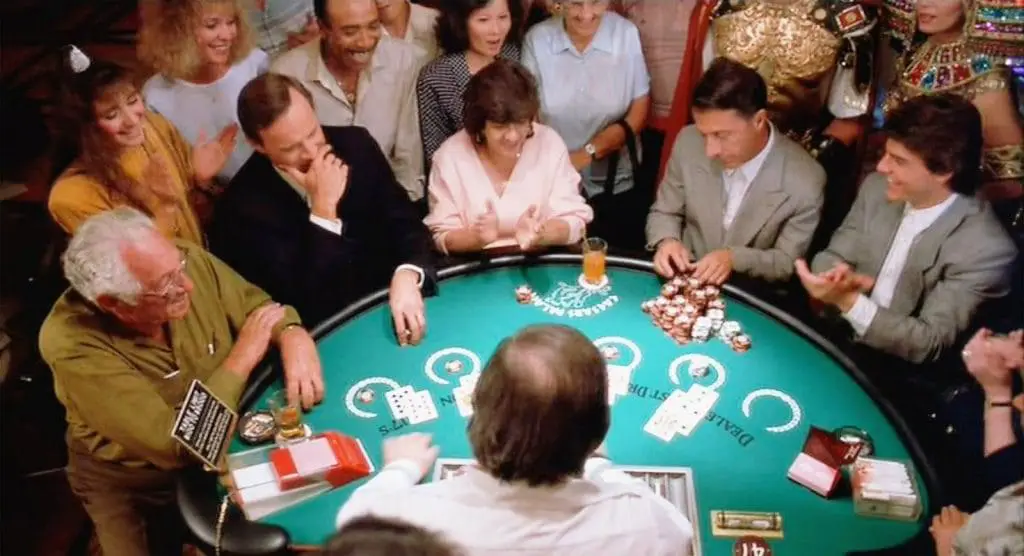
Sometimes I wonder if anyone actually reads this thing. Now I have my answer. Over the past week, FTW has received more response than ever about my “Life is Beautiful” review. The hundreds of emails roughly look like this:
20% – Agree with Wells’ positions and are glad someone took a stand. ^ 18% – Disagreed with positions and provided counter-arguments. ^ 40% – Believe Wells is a heartless, hipster wannabe/bastard fishing for “street cred.” ^ 13% – Want to shove something large up Wells’ a*s. ^ 9% – Wish hot flaming death upon Wells and/or members of his immediate family.
Death threats? Because someone on the internet didn’t like your favorite movie? Is this adult behavior? I must be doing something right.
If “Life is Beautiful” and “The Other Sister” were life-affirming experiences for you, my review doesn’t make me your mortal enemy. It doesn’t mean I’m belittling you. It just means I didn’t like the movies.
Let me say something about film and film criticism. Filmmaking is about more than storytelling, it’s about manipulation. When a director crafts his film, part of his job is to lead the audience to feel a certain way about what they see on the screen. The director’s effectiveness at this task is based on their talent, biases, mood swings, whatever.
Now we, the audience, all have different tolerances for this stuff based upon our temperaments, health, personal experience, whether something similar happened to you, whether your mother held you as a child, etc… Extreme reactions can come from something very specific. When I was 13, I kind of freaked when I saw “Friday the 13th” uncut on HBO. There’s a double-murder scene set in bunk beds, and, at the time, I slept in bunk beds. My amigo Chris Gore actually liked “Life is Beautiful”, but he has a son about the age as the kid in the film.
A related issue is the idea of “hot-button” topics. Most of us have topics that when presented, we have strictly emotional and often irrational reactions. Rape, incest, the Vietnam War, country music, and the Holocaust often invoke these kind of feelings. Too often, when a film involves the Holocaust, the audience gets a case of the sad, empathetic fuzzies that wash out any problems with the film itself.
Your opinion of “Life is Beautiful” will usually boil down to two things: Your objectivity toward the Holocaust and your opinion of Roberto Benigni. One of the main criticisms (other than I’m a dick) is I admitted that I expected bad things going in, but I don’t make up my mind until I actually see it. Often, when I went with low expectations, such as with “The English Patient”, “Ringmaster”, “Happy Together” and hundreds of others, I was quite surprised by how much I loved those films. I really wanted to hate “Buffalo ’66” after reading the 40th self-serving interview with writer/director/star Vincent Gallo, but I had to admit I loved it. Unlike Gallo, Benigni didn’t do anything to surprise me. From his previous films he gave exactly the performance and direction I expected and I didn’t like them any better this time. Go rent “Il Monstro” and “Johnny Stecchino” and find out. I know a great deal of people who felt like I do, but I had not observed any negative opinions, anywhere. If I had to be the voice of dissent, then I was not going to treat the film like some sacred document and I would review it like I would any other film.
Finally, you’re reading “Film THREAT”. What do you expect? There was nothing printed last week that was particularly out of character. Whatever our opinion, at least it’s honest. No one here is sugar-coating their thoughts to protect the delicate sensibilities of an unseen audience. If you have an opinion different than mine, that’s okay, but don’t forget still other people have a different opinion than you. If all you want is attitude that won’t really offend anyone, go read MOVIELINE.
